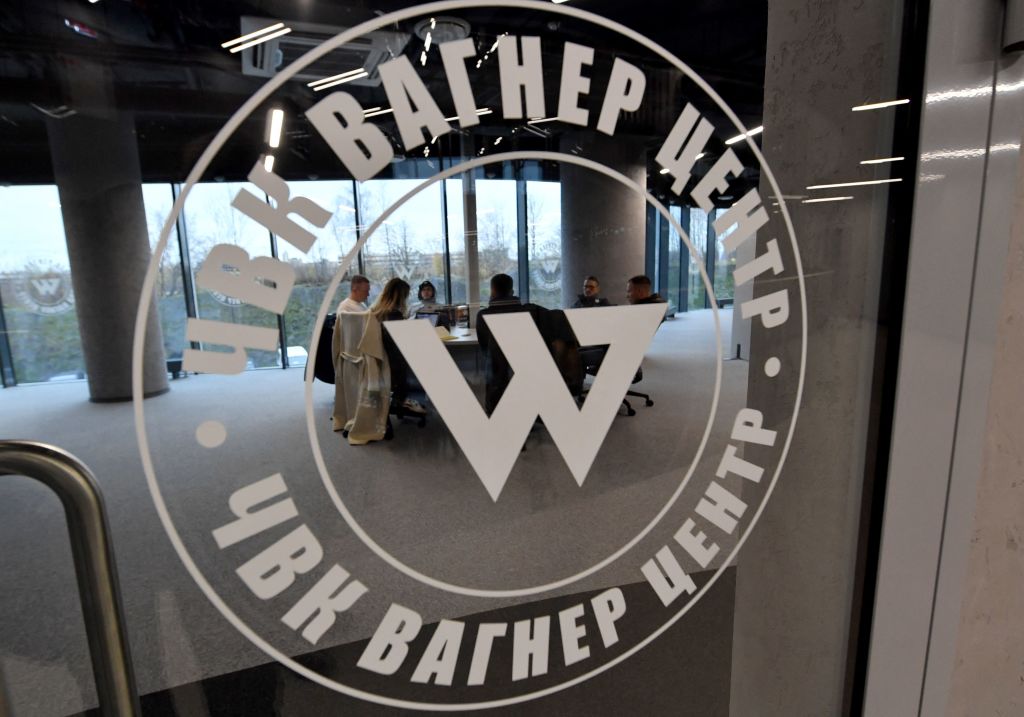ADF STAFF
“The Grey Zone” is the name of the Telegram channel affiliated with Russia’s Wager Group mercenaries — a name that also reflects the lawless space in which Wagner works.
“The Grey Zone” is also the title of a new analysis of Wagner’s activities by the Global Initiative against Transnational Organized Crime.
Subtitled “Russia’s military, mercenary, and criminal activity in Africa,” the report outlines the group’s operations across multiple African countries and its illicit and illegal enterprises.
“The Wagner Group is unique as an organization in the breadth, scale and boldness of its activities,” the report’s authors, Julia Stanyard, Thierry Vircoulon and Julian Rademeyer, wrote. “The Wagner Group — as it is today — can be compared to the characteristics of Russian organized crime and its activities overseas.”
Wagner is spreading out from hub countries, such as the Central African Republic, to put down new roots elsewhere on the continent. Since first arriving in Sudan in 2017 at the behest of former dictator Omar al-Bashir, Wagner has rapidly expanded its presence across the continent through a mix of military, economic and political activity. Where Wagner goes, affiliates such as Meroe Gold, Kraoma Mining and Lobaye Invest soon follow to extract mineral wealth and ship it back to Moscow.
Along with the Central African Republic and Sudan, Wagner is now active in Libya and Mali. It has funded political campaigns in Madagascar. Wagner’s political activities have also touched the Democratic Republic of the Congo, Equatorial Guinea, South Africa and Zimbabwe. Wagner withdrew from Mozambique after incurring losses during fights against extremists in Cabo Delgado province.
Global Initiative’s research suggests Wagner has its eye on several other African countries. The group has courted the ruling junta of Burkina Faso, Africa’s fourth-largest gold producer, about providing military assistance against Islamic extremists operating in the country. A similar offer to Mali has so far failed to eradicate extremists and led to the massacre of civilians in the community of Moura last year.
According to research by Africa Report, Wagner controls a Cameroon-based company called International Global Logistic (IGL), which handles the transit of Wagner-related materials through the port to and from the CAR. Wagner began as a client of the company but now effectively runs it.
Wagner’s hub in Douala, Cameroon, has put the country on its radar for exploitation. In 2022, Cameroonian President Paul Biya, who is facing a rebellion in Anglophone regions of his country, signed a training and information-sharing deal with the Russian government during a visit to Moscow.
As Wagner has spread, it has fed violence, human rights violations, disinformation supporting authoritarian rule, and large-scale smuggling of natural resources such as gold and diamonds. Wagner’s activities typically benefit its host country’s leaders to the detriment of that same country’s citizens and pro-democracy efforts.
In Sudan, Wagner maintains close ties with members of the ruling junta while smuggling gold out of the country and conducting disinformation campaigns to benefit the junta. In Libya, Wagner forces occupy a military base and support military forces loyal to Gen. Khalifa Haftar.
The CAR represents the Russian strategy in Africa at its peak, the report says. Wagner members serve as advisors and bodyguards to President Faustin-Archange Touadéra and have committed shocking violence against civilians in their pursuit of rebels associated with former President François Bozizé. Meanwhile, its affiliates, such as Bois Rouge and Laboye Invest, conduct logging and mining operations to benefit Moscow.
Wagner reflects a pattern of Russia using criminal organizations to push its agenda abroad, particularly in Africa. Wagner’s presence in Africa undermines economies, societies, and government institutions, according to the report.
“Considering the corrosive effect that Wagner’s operations are having on human rights, democracy and the rule of law, this is a considerable risk to Africa’s future security,” the authors wrote.

